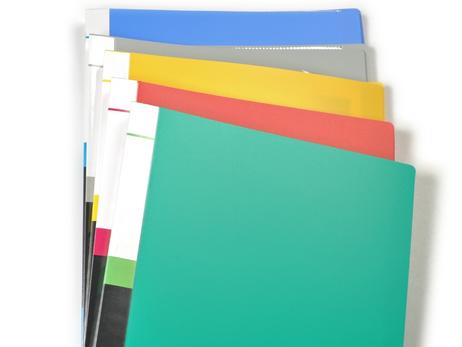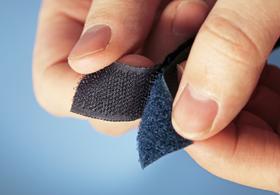Keeping your child's medical and academic records organized and easily referenced is an important task every parent must undertake. Here's why.
You and I have to keep certain records safe yet available for easy reference. Important papers such as tax returns, wills, deeds, titles, diplomas and certificates prove ownership and achievement. Many of these documents are originals which is all the more reason to keep them in a safe place and to keep them organized. You probably do not have to refer to them very often but you know where to find them when you need them.
The same thing applies to your child's records. There will be many times when you will have to furnish proof that your child has been immunized against certain diseases. Aptitude and other academic testing results are also important papers to keep on files. Here's how to organize your child's important papers so that you won't be missing the documentation you will need to support her application to nursery school, primary school, high school, and college.
Medical and Health Records
Keep records of all immunizations, test results and prescriptions. Why? Because you will be required to provide proof of immunizations as part of your child's medical record when you apply to private school at any level. Schools need to know about allergies your child has so that they know what action to take if and when she has an allergic reaction to something. Ditto with any medications which your child takes. If medications must be administered at school, the school will have protocols in place to take care of that.
What's the best way to keep records? You can keep them online. Google Drive, iCloud, One Drive, and DropBox make online storage easy to use at a low cost. This method allows you access to important medical information from anywhere. Simply scan documents and upload them to the drive of your choice.
Here are some more suggestions for organizing records.
Use a spreadsheet to log your child's medical and health records as well as doctor's visits. One thing which I have learned over the years is that healthcare professionals keep good records of your child's visits and treatment. Unfortunately, those health records are kept on file at the healthcare professional's office. Requesting copies of those records is both time-consuming and costly.
You should also maintain paper files for original documents such as birth certificates, adoption papers, social security cards, immigration papers, and visas. The authorities still want to see original documents as opposed to copies.
Tip: keep valuable original documents in a fireproof safe at home or in your safety deposit box at your bank.
Record-keeping is important but it is time-consuming. So be sure to schedule a regular time each month to review and file important papers. This step will prevent you from getting caught short when an application deadline looms or an emergency requires you to furnish the most recent documentation.
Academic Records
From the earliest report cards and teachers' assessments of your child's progress to college diplomas and everything in between, academic records chronicle her progress from infancy to maturity. Report cards are not the same thing as academic transcripts. When you apply to schools, they will ask your permission to obtain transcripts from the schools which she has attended. Report cards give you a rather more granular record of your child's academic achievements. These are definitely well worth having in her academic archives. Save standardized test reports from SSAT, ISEE, PSAT, SAT, and ACT as well as any state-administered tests as part of the record too.
This video, while aimed at a homeschooling situation, offers some very helpful tips for organizing your child's academic records.
Did your child take any IQ or aptitude testing such as Stanford-Binet or Wechsler? Make sure that those test results are part of her record as well.
Keep your child's academic records organized so that you can prove her eligibility for enrichment and other programs as those opportunities present themselves. Providing proof of previous testing may also eliminate the need for expensive retesting.
Tip: Use large binders for safe-keeping of your child's classwork, art and projects. One binder per year for the primary grades will shrink to one binder or perhaps two for all of middle and high school.
Just as medical record-keeping supports your child's health, academic record-keeping illustrates your child's progress. Most children will be delighted to discover that you have kept all their academic output. Reviewing what they have accomplished over the years affirms what they already know about themselves. That affirmation can often be a key factor in making important life decisions such as career moves and so on. Academic records prove what you have accomplished as opposed to what you think you have accomplished. That reality check is needed from time to time as we progress through life.
Portfolio of Achievements
I define a portfolio of achievements as a collection of all the important honors and milestones in your child's life. Ribbons, certificates, photos of a championship team, a scrapbook of her junior year abroad - a portfolio of achievements is all these things and much more. How does it fit into the record-keeping routine? Why is it important? Let me give you an example.
If your child showed early promise as a pianist and began winning prizes at local and regional competitions, you would want to record every exciting moment in a special album or binder dedicated expressly to her musical achievements. That way, when it comes time for her to apply to a world-class conservatory of music such as Julliard or The Curtis Institute, her portfolio of achievements demonstrates your support of your child's pursuit of her dream. The portfolio allows teachers and admissions staffers to review her achievements as they consider where she fits in. Her portfolio allows her new teachers to determine how best to tailor programs for her. They can assess her progress and her potential when you offer a carefully curated portfolio of her achievements.
This video explains how electronic health records work.
Do the same thing with sports, drama, or whatever interests your child has. Use a portfolio of achievements to document them in detail.
Keeping your child's records in order and up to date is not something that you do when you get around to it. Order that round tuit and make time to take care of this important part of parenting.
Questions? Contact us on Facebook. @privateschoolreview





















